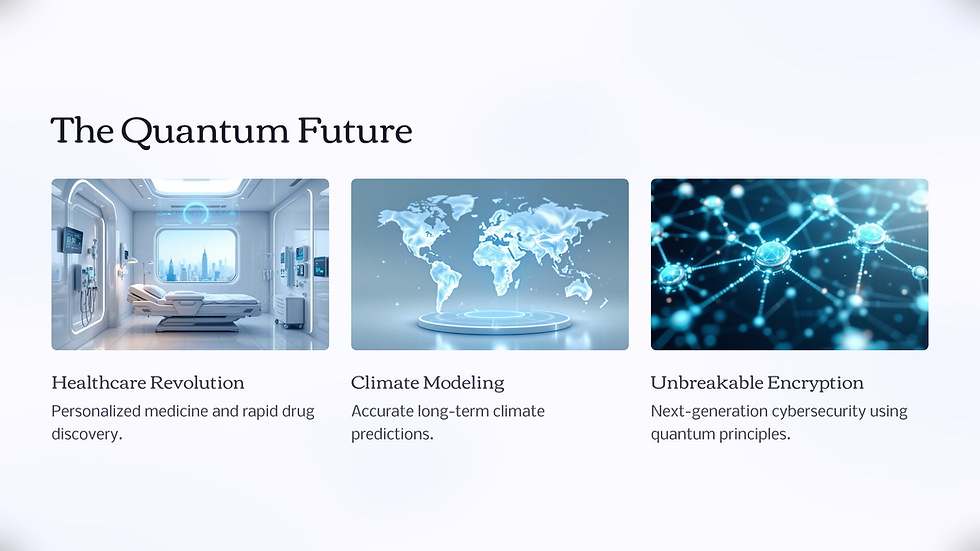Quantum Computing: The Next Frontier
- Alvin Lourdes

- Oct 31, 2024
- 1 min read

October 31 2024
Quantum computing differs from classical computing by using qubits instead of bits, allowing it to process multiple possibilities simultaneously through superposition and entanglement. This parallel processing capability enables quantum computers to tackle complex problems much faster than traditional computers, which are limited to evaluating options sequentially.
For AI, this means quantum computing can dramatically accelerate tasks like training deep learning models, analyzing large datasets, and solving optimization problems (such as route planning or neural network adjustments). Quantum computing’s potential to process vast amounts of data and explore multiple outcomes at once could significantly improve AI applications in areas like natural language processing, computer vision, and reinforcement learning.
In the future, as quantum technology advances, its integration with AI could lead to breakthroughs in fields such as healthcare, finance, and environmental science. Despite challenges like qubit stability and high costs, ongoing developments suggest that quantum computing, combined with AI, could transform industries by enabling new levels of accuracy, scalability, and efficiency in solving complex, real-world problems.
#QuantumComputing #AI #FutureTech #MachineLearning #DeepLearning #Innovation #TechAdvancements #QuantumAI #ComputingRevolution #EmergingTech




Comments